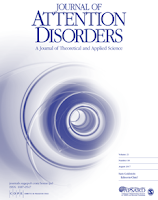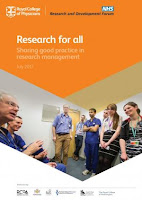 Things about antibiotics...
Things about antibiotics...Hitting the news yesterday - this is the comment from NHS Behind the Headlines. "The researchers behind this review challenge these established ideas by suggesting that shortening the course of antibiotic treatment could be just as effective and that 'finishing the course' could actually be making the problem of antibiotic resistance worse. This narrative review was written by researchers from several UK institutions, including Brighton and Sussex Medical School, the University of Oxford and the University of Southampton. It was published in the peer-reviewed British Medical Journal and is free to read online .Generally the UK media's coverage was accurate and balanced. The majority of reporting referred to the review as an "opinion piece" and highlighted the importance of people continuing to follow doctors' advice to complete a prescribed antibiotic course.This review raises some interesting points and the guidelines around antibiotic treatments may change in the future. However, for now it's best to stick with current advice to complete the full antibiotic course as prescribed."
Things on rare diseases...
 Rare disease study day in Sheffield on 7th September 2017. Aimed at non-specialist clinicians. This day aims to give an update on important rare diseases in paediatric practice. Talks will include: overgrowth syndromes, 22q11 deletion syndrome, immunodeficiency and inherited causes of renal cancer. Representatives of the charities Unique and SWAN will give talks on their work. Attendance is free. Please contact Dr Alisdair McNeill (consultant in Clinical Genetics), a.mcneill@sheffield.ac.uk if you would like to attend. CPD accreditation is being sought.
Rare disease study day in Sheffield on 7th September 2017. Aimed at non-specialist clinicians. This day aims to give an update on important rare diseases in paediatric practice. Talks will include: overgrowth syndromes, 22q11 deletion syndrome, immunodeficiency and inherited causes of renal cancer. Representatives of the charities Unique and SWAN will give talks on their work. Attendance is free. Please contact Dr Alisdair McNeill (consultant in Clinical Genetics), a.mcneill@sheffield.ac.uk if you would like to attend. CPD accreditation is being sought.Things about case reviews...
Each briefing focuses on a different topic (eg parents with mental health problems, culture and faith, sexual exploitation), pulling together key risk factors and practice recommendations to help practitioners understand and act upon the learning from case reviews.
Things about migrant child health...
 The International Society for Social Pediatrics and Child Health, Geneva, Switzerland (ISSOP) published a position statement on migrant child health this week. The health of migrant children is related to their health status before their journey, the conditions during their journey and at their destination, and the physical and mental health of their caregivers. These children may have experienced numerous forms of trauma including war, violence, separation from family, and exploitation. They may suffer from malnutrition and communicable diseases including vaccine-preventable diseases. In 2015, the number of forcibly displaced people across the globe reached 65.3 million. Of the more than 1 million migrants, asylum seekers, and refugees who arrived in Europe in 2015, nearly one third were children, and 90,000 of these children were unaccompanied.
The International Society for Social Pediatrics and Child Health, Geneva, Switzerland (ISSOP) published a position statement on migrant child health this week. The health of migrant children is related to their health status before their journey, the conditions during their journey and at their destination, and the physical and mental health of their caregivers. These children may have experienced numerous forms of trauma including war, violence, separation from family, and exploitation. They may suffer from malnutrition and communicable diseases including vaccine-preventable diseases. In 2015, the number of forcibly displaced people across the globe reached 65.3 million. Of the more than 1 million migrants, asylum seekers, and refugees who arrived in Europe in 2015, nearly one third were children, and 90,000 of these children were unaccompanied.Things about NHS staff...
 Behind Closed Doors : Can we expect NHS staff to be the shock absorbers of a system under pressure? This briefing highlights the latest evidence on NHS staff, their experience at work, the pressures they face and the consequences for patients. The Point of Care Foundation believes that it’s critically important that NHS employers to pay attention to staff and their experience at work because when staff feel positive and engaged with work it has a positive impact on patient experience. Behind Closed Doors therefore recommends that staff experience should be given equal priority with patient experience at all levels of the healthcare system. They would like to see organisations encouraging frontline staff to look after themselves, to pay attention to their own and their colleagues’ wellbeing, to alert their managers to pressures that can be alleviated, and to let them know when they need support.
Behind Closed Doors : Can we expect NHS staff to be the shock absorbers of a system under pressure? This briefing highlights the latest evidence on NHS staff, their experience at work, the pressures they face and the consequences for patients. The Point of Care Foundation believes that it’s critically important that NHS employers to pay attention to staff and their experience at work because when staff feel positive and engaged with work it has a positive impact on patient experience. Behind Closed Doors therefore recommends that staff experience should be given equal priority with patient experience at all levels of the healthcare system. They would like to see organisations encouraging frontline staff to look after themselves, to pay attention to their own and their colleagues’ wellbeing, to alert their managers to pressures that can be alleviated, and to let them know when they need support.and also....
 NHS Employers have published a briefing on 'Leading a healthy workforce: engaging board and clinical leaders to take positive action on staff wellbeing. "To achieve a healthy workforce, we need to be clear on what success looks like. Board leads and other leaders can start to make tangible differences immediately by focusing on these key elements: A clear vision and leadership from the top.
NHS Employers have published a briefing on 'Leading a healthy workforce: engaging board and clinical leaders to take positive action on staff wellbeing. "To achieve a healthy workforce, we need to be clear on what success looks like. Board leads and other leaders can start to make tangible differences immediately by focusing on these key elements: A clear vision and leadership from the top.- Making the wellbeing of staff central to the organisation’s work.
- Training for all managers on effective leadership and management behaviours
- The importance of staff wellbeing is embedded into organisational culture & known by staff.
- Organisational data is used effectively to inform engagement activity around staff wellbeing, target interventions, evaluate the impact of interventions and amend wellbeing programmes.
- A range of staff wellbeing interventions are provided specifically including both physical and emotional wellbeing and including quick access to treatment and support.
- Information and interventions are accessible, communicated and used to enable staff to take personal responsibility to improve and enhance their own wellbeing.
Things about nature, wellbeing and Sheffield...
 Shmapped is an app for your smartphone that invites users to map the good things about Sheffield’s green and built spaces. It is part of the innovative IWUN (Improving Wellbeing through Urban Nature) project run by the Universities of Derby and Sheffield which aims to better understand how different aspects of city living affect our wellbeing. When you download the app, you will be presented with a five-minute questionnaire that asks about your current health and wellbeing. All information you provide is anonymous and you can withdraw it at any time. For 30 days, the app will ask you to note the good things about the area around you. It’s very simple and allows you to share your thoughts and photos in seconds. After the 30 days, you will be asked to complete another questionnaire plus a final short one two months later.
Shmapped is an app for your smartphone that invites users to map the good things about Sheffield’s green and built spaces. It is part of the innovative IWUN (Improving Wellbeing through Urban Nature) project run by the Universities of Derby and Sheffield which aims to better understand how different aspects of city living affect our wellbeing. When you download the app, you will be presented with a five-minute questionnaire that asks about your current health and wellbeing. All information you provide is anonymous and you can withdraw it at any time. For 30 days, the app will ask you to note the good things about the area around you. It’s very simple and allows you to share your thoughts and photos in seconds. After the 30 days, you will be asked to complete another questionnaire plus a final short one two months later.Things about reading...
Don't forget to come and choose your holiday reading from our leisure reading section - or if you are around next Wednesday 2 August at 17:15 come and join our informal Reading Group - this month we are discussing 'Fried Green Tomatoes at the Whistle Stop cafe' but don't worry if you haven't read it...come along anyway.
Things about personalised medicine...
With the increasing identification of disease-associated variants in human genetics there is more discussion around personalised treatments. This article uses Cystic Fibrosis as an example to discuss this topic 'Personalized or Precision Medicine?'
Things from Budapest...
 |
| (c) Gill Kaye 2017 |




















